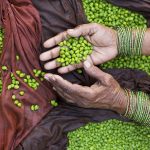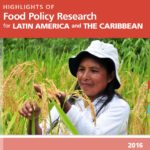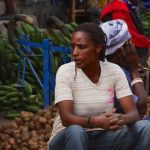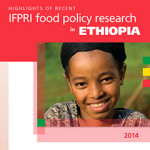Agriculture is the primary livelihood for nearly half the population of South Asia, and yet its potential to reduce undernutrition remains unrealized. One-third of children in South Asia are stunted. Despite increasing political will to improve nutrition, evidence has been sparse on how agriculture and agrifood systems can be better designed to improve nutrition. In 2012, a research consortium called Leveraging Agriculture for Nutrition in South Asia (LANSA) was formed among the Collective on Social Science Research in Pakistan, BRAC, the Leverhulme Centre for Integrated Research on Agriculture and Health (LCIRAH), the Institute of Development Studies (IDS), and IFPRI, under the leadership of the M.S. Swaminathan Research Foundation and with support from UK's Department for International Development (DFID). The aim was to generate evidence to strengthen the nutrition sensitivity of agrifood systems in Afghanistan, Bangladesh, India, and Pakistan.
UK (Department for International Development)
A longstanding partner to IFPRI, the United Kingdom’s Department for International Development (DFID) is the largest bilateral donor to development-focused research. As such, DFID fosters the new technologies and ideas that are essential to tackling some of our greatest challenges. In June 2002, the International Development Act made poverty reduction the official focus of DFID’s work, and the department has risen to meet the challenge. DFID’s support has contributed to IFPRI’s work tackling root causes of hunger, particularly in Africa. It emphasizes improving agricultural productivity and innovation, promoting climate change resiliency, and ensuring food and nutrition security through cash transfers, biofortification, and other means. In 2010, IFPRI’s collaborated with DFID’s Foresight Food and Farming study that produced innovative evidence on the increasing pressure on the global food system.
Recently at IFPRI’s 40th Anniversary event, Tim Wheeler, Deputy Chief Scientific Adviser for DFID shared how IFPRI’s evidence-based research has impacted the agency and its work towards food and nutrition security. He said, “IFPRI has been at the forefront of many aspects of development…successful in elevating debates to high-level policymakers transforming development packages.”
For more on the projects that IFPRI and DFID partnered together, please go to this brochure.
Highlights of Food Policy Research for Latin America and the Caribbean
This brochure highlights the national and local collaborations IFPRI has been engaged in Latin America and the Caribbean. For more than 30 years, IFPRI’s research and collaboration have contributed to positive changes, including enhancing the culture of accountability and generating groundbreaking evidence that has strengthened resilience, improved nutrition, and spurred strategic food security policies and >> Read more
ReSAKSS: 10 Years of Promoting Evidence-Based Policy Planning and Implementation under CAADP
Ten years after its establishment, the IFPRI-facilitated ReSAKSS in Africa serves as a vital support to the implementation of CAADP. On October 18-20, 2016, the 2016 ReSAKSS Annual Conference will be held in Accra, Ghana to review and discuss the CAADP implementation.
Creating a Culture of Accountability: Global Nutrition Report
This week is the Global Launch Week for the 2016 Global Nutrition Report From promise to impact: Ending malnutrition by 2030. Since its first edition in 2014, the Global Nutrition Report has been creating a culture of accountability to help attain nutrition security for all.
DFID: The Value of Agricultural Research
Tim Wheeler, Deputy Chief Scientific Adviser for DFID, expressed how IFPRI’s research enriched DFID’s work against hunger, malnutrition and poverty.
Transformative Collaboration in Ethiopia
Ethiopia is one of the poorest, most populous, and largest countries in Africa. It has suffered challenging conditions over the past several decades such as the 1984 drought combined with civil war that resulted in a catastrophic famine,





